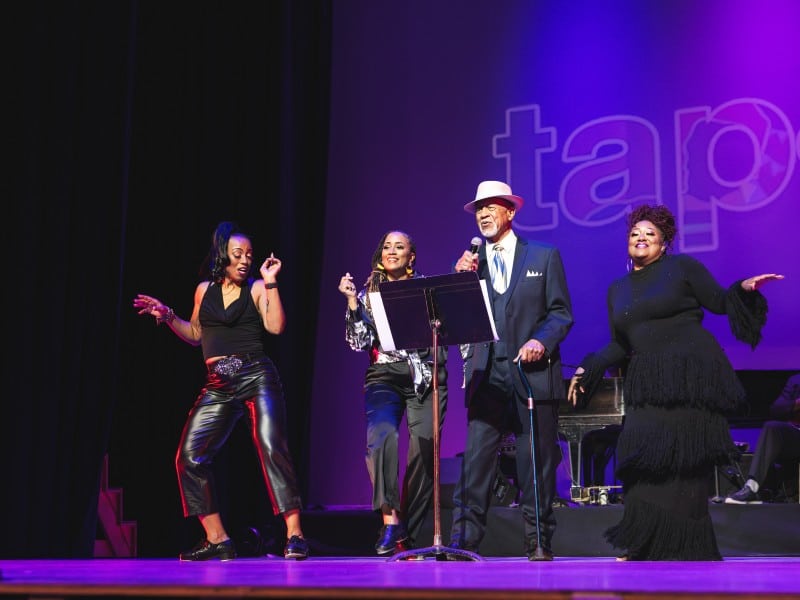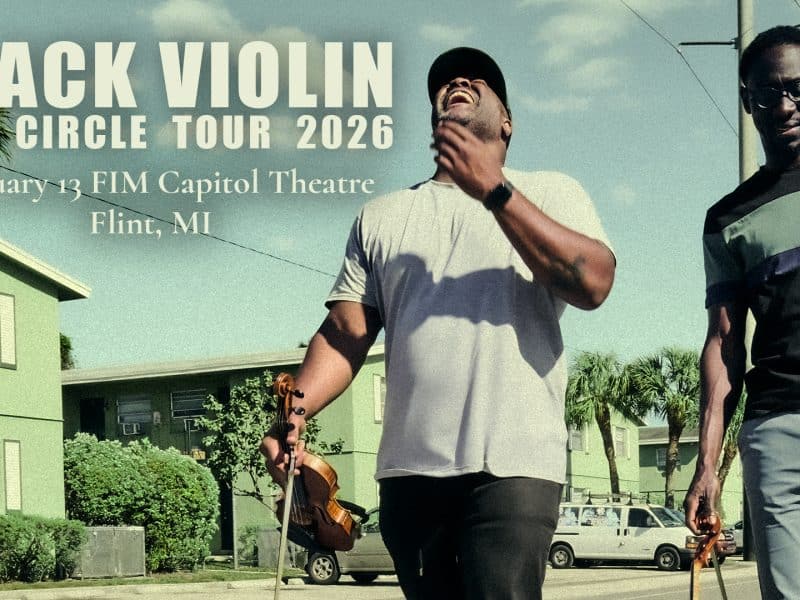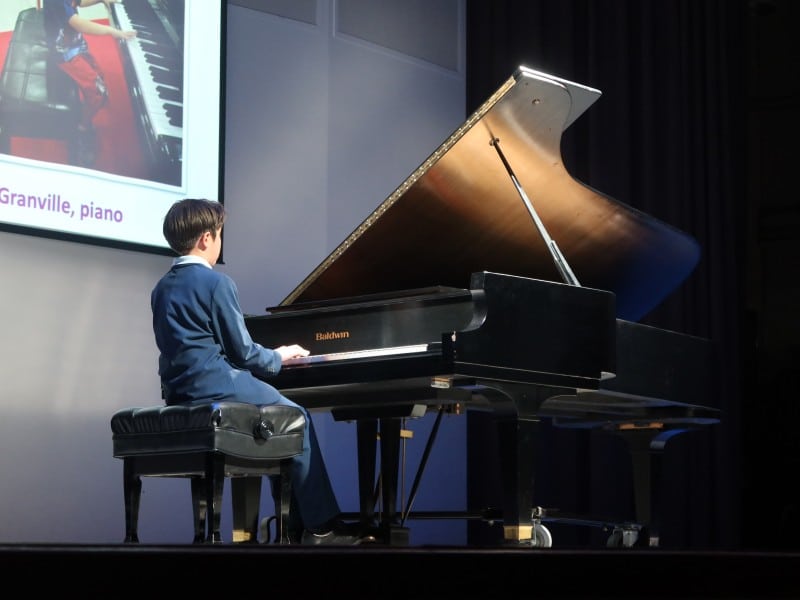Family, motherhood, and the life of Kids Like Mine founder, LaTashia Carter-Perry
Flint native and award-winning children’s author LaTashia Carter-Perry discusses family, success, hardships, and her near-death experience that put everything into perspective.
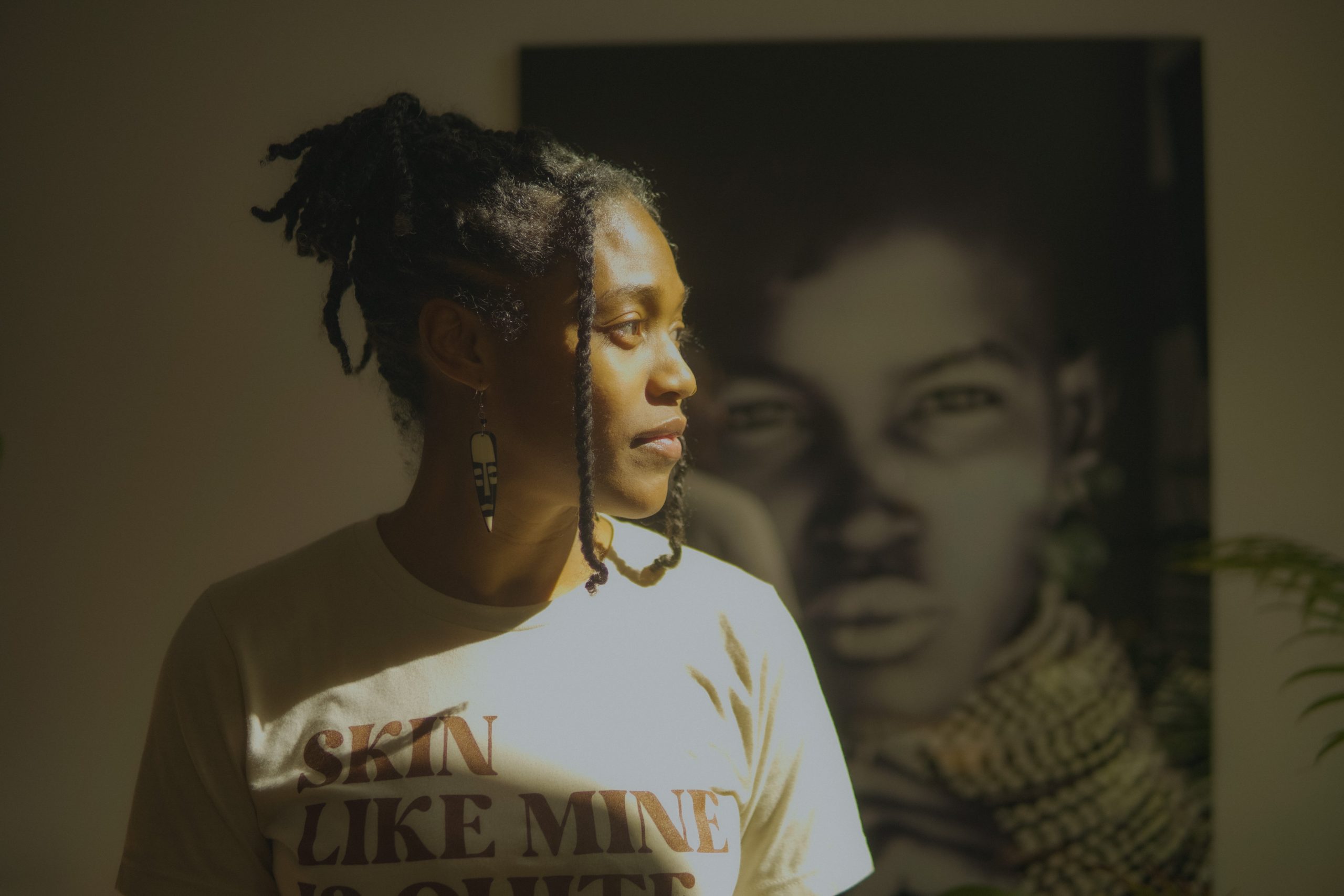
FLINT, Michigan — Tender is how author LaTashia Carter-Perry feels to me. It is a stark contrast to the fiery and salubrious woman I talked to a year ago when our original conversation was to take place. At that time, she was in the middle of her sixth pregnancy, on the cusp of launching her mobile bookstore under her Kids Like Mine empire, and on a rocket ship headed into a new echelon of commercial success. But that all changed nine months ago.
Ten days after giving birth to her son Nico, LaTashia Carter-Perry almost died.
“First of all, it traumatizes you when something like that happens. I was almost up out of here and left a husband and six kids,” she says, drudging up the memories of that ordeal. That time devastated friends and family, suddenly withdrew her from the spotlight, and wrapped her in the seclusion of her and husband Virgil Perry’s “Black as f*ck” Grand Blanc estate.
In her immaculately decorated living room, we sit across from each other where multiple plants, fabric color schemes, crystals, Buddha statues, African artwork, her books, and awards are on display. It is the manifestation of “doing specifically what I was put here to do,” which, in her case, means writing books, being a role model for women, and being a haven for children.
But perhaps more innately is her meditative practice and living a life entrenched in spiritual and African ancestral beliefs and rituals — which have inspired the creation of her books she recognizes are “in alignment with [my] purpose.” But it’s no surprise that the Perry family exemplifies Black excellence and spiritual bigness.
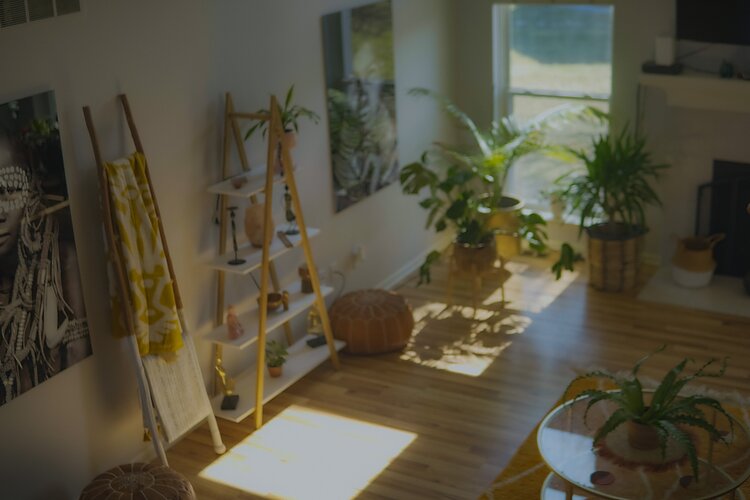
LaTashia is an award-winning children’s author, having sold over 500,000 books translated into Spanish, French, and soon, German. In addition to books, she produces puzzles, bags, dolls, and t-shirts. Virgil maintains his job in addition to being a fitness, fashion, music, and muscle car aficionado. Their oldest sons Justin and Austin are sports stars while daughters Cassidy and Carrington are top scholars and models for Kids Like Mine.
The newest members of the family, Nixon and Nico, keep them and the couple’s massive social networks entertained. The Perry family portraits showcased as #perryposse6 garner hundreds of likes and adornments. In modern terms, they are the Winslow’s, the Banks of Bel-Air, and the Huxtables.
But right now, she speaks of the fear “that haunts me,” not knowing what her husband and children would’ve done without her — how her newborn child “[would] never know me.”
The weight of her words hit that sitting across from me isn’t the woman seen on social media posing confidently with her family and in awe of the global success of her ‘Like Mine’ series of books. Instead, I am present with a woman healing from the perceived betrayal of her body, the trauma of a near-death experience, and trying to regain and redefine who and what she is. At this moment, LaTashia Carter-Perry is vulnerable and exposed. In a twisted sense of irony, she is mad that what almost killed her was the identity and catalyst of her success: being a mother and having children.
“I felt like my body betrayed me. Those are the words that keep ringing. That’s how I feel. I’ve had five kids before, and I was fine, and nothing happened,” Carter-Perry says, still in disbelief. “And ten days later, the best thing turned into almost the worst thing. How do you turn that happy experience into trauma?”
That trauma has allowed Carter-Perry to invite me into her home as a scribe to record the truth of her life and unearth the many layers that surround her: daughter, sister, wife, mother, author, entrepreneur. And while they have brought joy, things weren’t always glamorous. She explains the hardships of being married with four children living inside a two-bedroom apartment, how she’s dealt with imitators, navigating business deals and opportunities as a Black woman, and trusting her spiritual intuition.
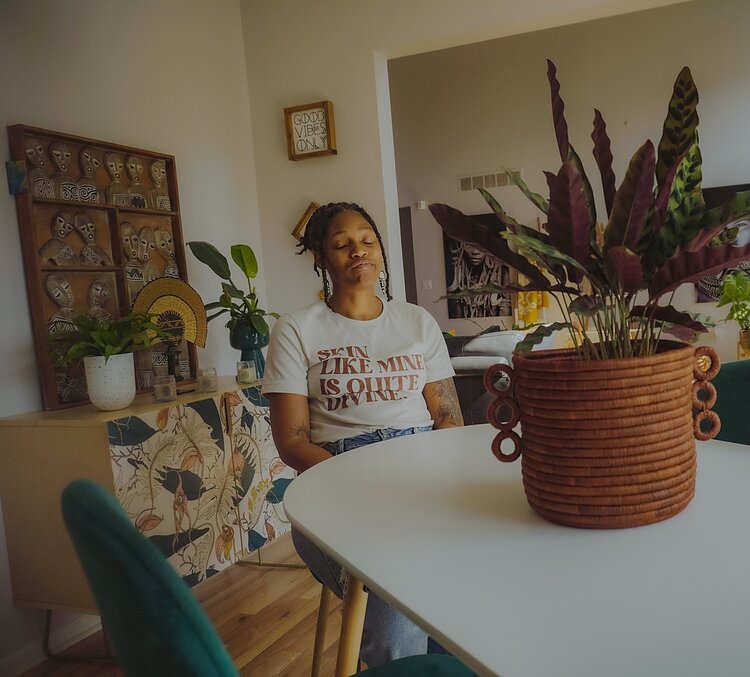
However, what strikes the most is dealing with people’s projected expectations of how family, motherhood, and success should appear.
“For a long time, I was made to feel embarrassed because we were having children, and I had made this decision that I wasn’t going to finish school. It was like, ‘here y’all are, young, Black, not going to school, and you’re going to keep having baby after baby?’” She says with an exhausted expression. “I had to get to a point where I was like f*ck it. I’m doing what I want to do because this is what I always wanted.”
What she wanted was to write a book. The story she’s told the press was that her first book, Hair Like Mine, started because of daughter Cassidy’s trouble at school with her hair but that’s not quite the whole truth nor does it call to view the strain and sacrifices of coming up with the money needed to create it.
It also doesn’t reveal the “questions that I’m asked about [not] having a degree” and how people have tried to downplay her achievements. It is a topic that has sometimes sparked bouts of imposter syndrome and self-criticism. But LaTashia has indeed achieved success without the need for institutional paper validation. So I ask her, what’s the real story behind creating her first and most successful book, Hair Like Mine?
“When I first wanted to write Hair Like Mine, we were living in that two-bedroom apartment. For me to write, illustrate, and publish that book, we needed $1,800. It caused some friction with Virgil and me because he wanted to make sure we ate and the lights stayed on,” LaTashia says while playing in her hair.
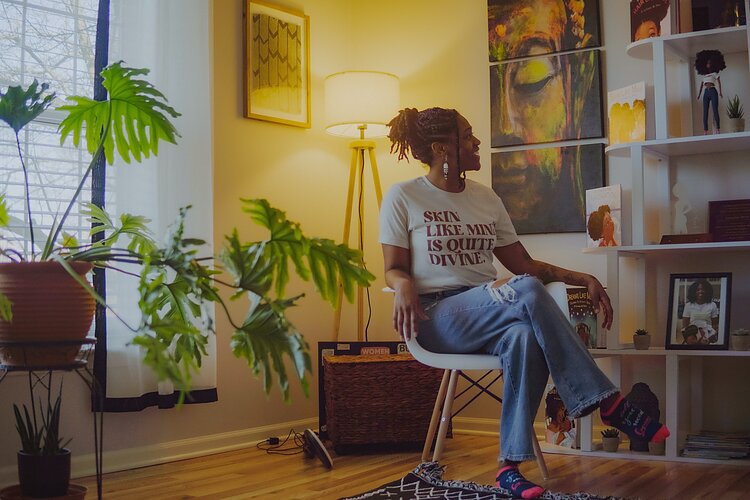
“Yes, I wrote [Hair Like Mine] about Cassidy’s experience but I have learned that I was doing all of this as an ode to little girl Tashia. It was about healing and giving her the voice she never had. That’s the big picture of Kids Like Mine. My daughters helped push it out but it was something that I didn’t realize I needed.”
And what she needed has led us back to her trauma. It’s a hard pill to swallow as she leans forward, wrestling with the irony and her emotions on the matter. It makes us wonder how many other women are grappling with the trauma of complications after childbirth and what help is available because “I know that Black women and maternal health is a huge issue.”
She explains how “I’ve slowed down,” although you can’t tell from her recent announcements of partnerships, a launch of new t-shirts designs, the success of her mobile bookstore, and current negotiations for new business ventures. However, one thing seems to have eluded her — a new book. “I wouldn’t say I don’t have nothing left to say,” she says. “But I keep trying. I’ll start some and then I’ll start another one. Virgil keeps saying, ‘I think you need to do something around what happened to you because you keep going back to it.’”
But while writing children’s books seems to be on hold, and the grief of her near-death experience remains present, there’s something she’s learned from everything up to this point.
“This is going to be so cliche but when you stop giving a sh*t about what people think and say about you, that is freeing [and] you move different. Also, I’ve learned it is okay to be selfish. It ain’t always a good thing but it has worked out well for me. No, we cannot afford for me to write a book but I’m doing it anyway, and it paid off. So, be selfish sometimes.”
To learn more about LaTashia Carter-Perry, purchase books, or invite her to your school or organization, visit her website: 4kidslikemine.com


